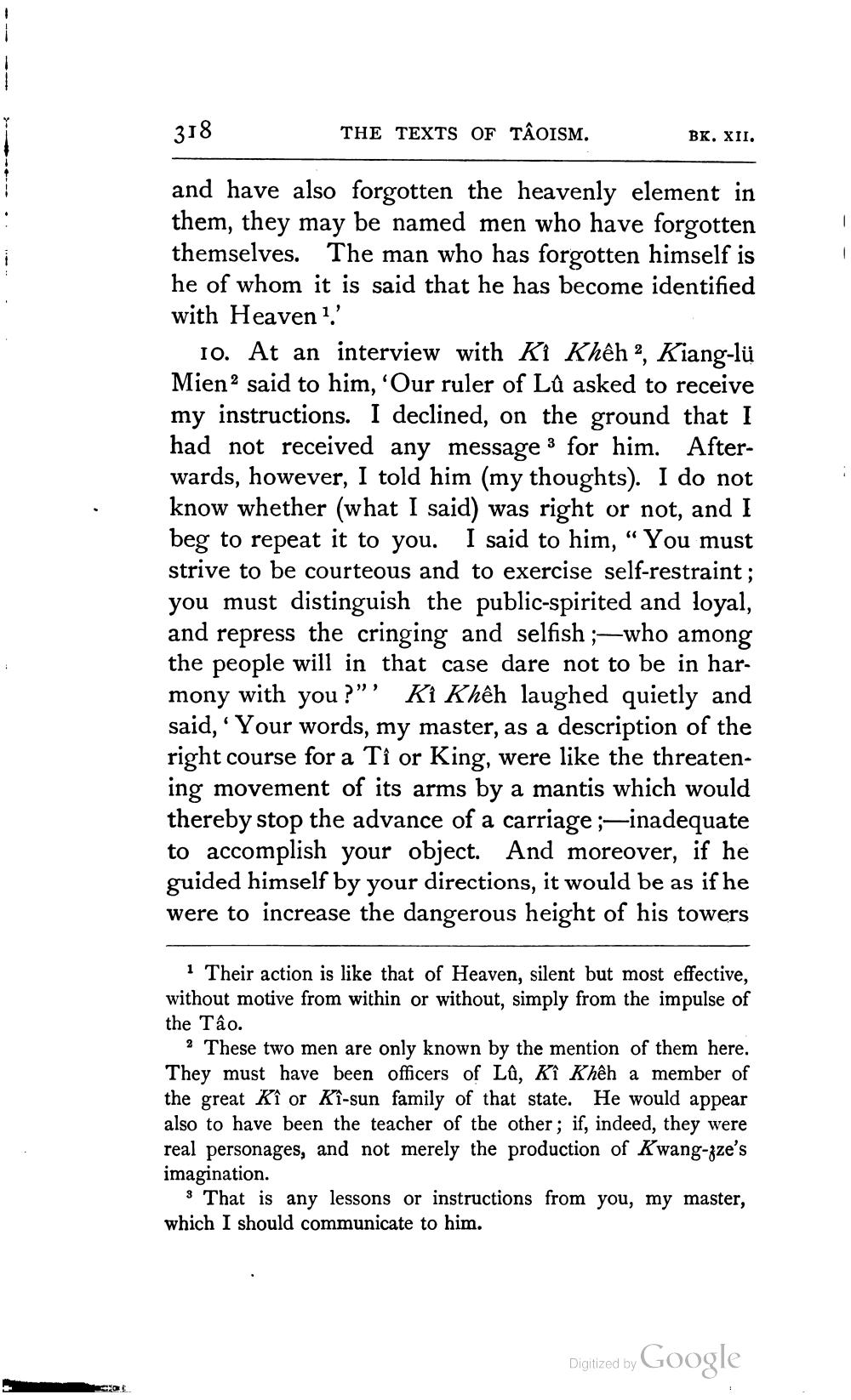________________
318
and have also forgotten the heavenly element in them, they may be named men who have forgotten themselves. The man who has forgotten himself is he of whom it is said that he has become identified with Heaven 1.'
THE TEXTS OF TAOISM.
BK. XII.
3
10. At an interview with Ki Khêh 2, Kiang-lü Mien2 said to him, 'Our ruler of Lû asked to receive my instructions. I declined, on the ground that I had not received any message for him. Afterwards, however, I told him (my thoughts). I do not know whether (what I said) was right or not, and I beg to repeat it to you. I said to him, "You must strive to be courteous and to exercise self-restraint; you must distinguish the public-spirited and loyal, and repress the cringing and selfish; who among the people will in that case dare not to be in harmony with you?" Ki Khêh laughed quietly and said, 'Your words, my master, as a description of the right course for a Ti or King, were like the threatening movement of its arms by a mantis which would thereby stop the advance of a carriage ;—inadequate to accomplish your object. And moreover, if he guided himself by your directions, it would be as if he were to increase the dangerous height of his towers
1 Their action is like that of Heaven, silent but most effective, without motive from within or without, simply from the impulse of the Tâo.
2 These two men are only known by the mention of them here. They must have been officers of Lû, Kî Khêh a member of the great Kî or Kî-sun family of that state. He would appear also to have been the teacher of the other; if, indeed, they were real personages, and not merely the production of Kwang-zze's imagination.
That is any lessons or instructions from you, my master, which I should communicate to him.
Digitized by Google
T




